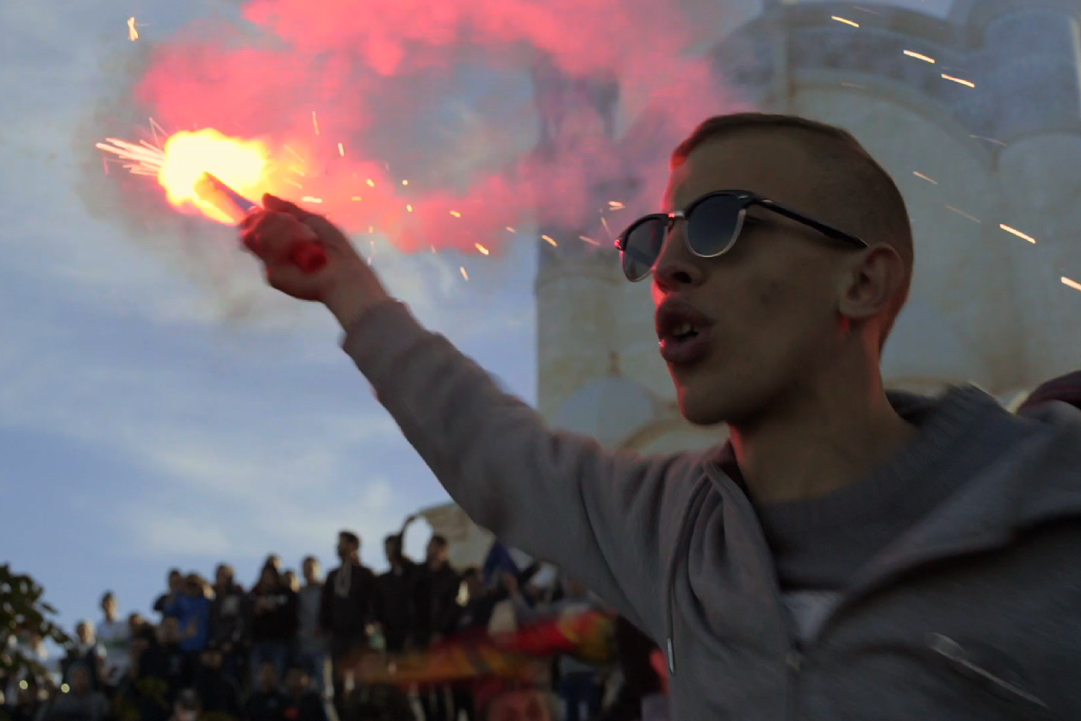BBC Arabic Festival: Stories from a changing Arab world
Barriers, bombs and the human condition: an eclectic mix for an eclectic festival. And it's free!

Your support helps us to tell the story
From reproductive rights to climate change to Big Tech, The Independent is on the ground when the story is developing. Whether it's investigating the financials of Elon Musk's pro-Trump PAC or producing our latest documentary, 'The A Word', which shines a light on the American women fighting for reproductive rights, we know how important it is to parse out the facts from the messaging.
At such a critical moment in US history, we need reporters on the ground. Your donation allows us to keep sending journalists to speak to both sides of the story.
The Independent is trusted by Americans across the entire political spectrum. And unlike many other quality news outlets, we choose not to lock Americans out of our reporting and analysis with paywalls. We believe quality journalism should be available to everyone, paid for by those who can afford it.
Your support makes all the difference.The annual BBC Arabic Film Festival is a combination of two elements: firstly, a competition in which newcomer directors compete with one another to win the much-sought after accolade for best film. Secondly it is a showcase of talent as directors seek to provide insight into the maelstrom of the Middle East.
Head of BBC Arabic, Sam Farah said: “We are proud once again to be bringing our unique festival to audiences both in person in London and across the world via our broadcasts. BBC Arabic Festival 2017 is our chance to showcase the experiences of our audiences in their own words and of some of the most exciting new journalists and film makers today, with a great emphasis on encouraging more of these voices to come out in this way.”
An open and public event spanning across the week of the 24 March, it will also host workshops and seminars for the curious and the professional alike.
Sheyma Buali, the organiser of the event says that the festival, which will screen over a dozen shorts, features, expressionist pieces and documentaries, is a “warm way of connecting with audiences” without watching the news, so often filled with trauma and blood.
Modern political discourse focuses on the idea of borders: Brexit was a decision hinging upon the issue of immigration control; Donald Trump vows to build a wall keeping Mexican immigrants out; Palestine is riddled with both social and physical barriers that prevent people from living normal lives. The theme carries itself well in the festival. The greater conscience of mobility and the process of othering shows itself again and again in the chosen films: Ka’ek is an allegory of diversity, as a roadside sandwich vendor reflects on his customers: the rich, the poor and the pigeons.
The festival will showcase directors who like to play with form: The Majoun Collective, a group of Syrian creatives, will be showing their stop-motion film Yaman, about a little boy who wants to be an inventor when he grows up – so he invents a machine which gives super powers to tissue – and uses it to make armour to protect him. Sheyma calls it “cute but tragic”.

Ambulance is the hard-hitting documentary about an ambulance driver in Gaza, and Babor Casanova looks at disenfranchised Algerians through a quasi-documentary lens.
And it’s not just films.
The opening day will include a free-for-all, un-ticketed Arabic music and street food market and taking place in the BBC World Piazza from 12pm will be a selection of food stalls with culinary specials from the Middle East to North Africa and an experimental electronic performance in collaboration with Shubbak: London’s Festival of Contemporary Arabic Culture by Khaled Kurbeh and Raman Khalaf.
Adam Curtis will also be talking about how Britain and America invented fake visions of the Arab world for over 40 years (Thursday 28 March, 7pm).
Producer, Nadine Toukan, will be hosting a special seminar discussing the short format (Tuesday 29 March, 12pm) and Beyond the Script presented by award-winning journalists, will probe the limits of filmmaking (Wednesday 29 March 7pm).
The festival will run from Friday 24 March to Wednesday 29 March, and will be screened at the BBC Radio Theatre. You can sign up to the films for free, here.
Join our commenting forum
Join thought-provoking conversations, follow other Independent readers and see their replies
Comments